Daryl Hannah, Sr. Director of Narrative Strategy, Atlantic Fellows for Racial Equity
For him, the work of uplifting Black stories fed into the work of disrupting these acts of violence and improving the lives of Black people in the U.S.
Over time, it has become increasingly popular to celebrate Black History Month by re-telling heroic stories about Black people’s struggles for liberation. While this approach encourages Black audiences, we can deepen its impact if we match it with action to transform today’s policies, institutions and narratives.
This Black History Month, we’re asking our community to join our Fellows, partners and other advocates in achieving that. Below we’ve summarised eight policy proposals that, if passed today, would help to address the deep structural inequalities that exist in South Africa, the U.S. and globally.

1. Pass the BREATHE Act in the U.S.:
In July 2020, the Electoral Justice Project of the Movement for Black Lives put forward the BREATHE Act. The bill seeks to transform public safety for Black communities and other communities of colour who face disproportionate impacts of police-related violence and the legal system. The BREATHE Act calls for divestment from current models of policing, investment in alternative approaches to community safety, and transparency and accountability in officer-involved shootings, among other policies. Policymakers at the federal and state levels should pass the BREATHE Act to address the needs for community safety and structural racism imbedded in the criminal justice system.
Click here to take action in support of the BREATHE Act.
Follow and support the Movement for Black Lives.

2. End Gender-Based Violence in South Africa:
Last year, South Africa saw alarming rates of gender-based violence, exacerbated by pandemic-related restrictions. Multiple factors overlap to make South African women and femmes vulnerable to violence, including race, gender, sexuality, and class. In an October 2020 interview, Atlantic Fellow and Founder of United Domestic Workers of South Africa (UDWOSA) Pinky Mashiane noted the particular nature of the abuse that women domestic workers face.
In the wake of the disturbing trend, organisers have pushed the national government to tackle gender-based violence via policy reform and centre the voices of survivors and advocates who support them.
Follow and support the work of United Domestic Workers of South Africa (UDWOSA)

3. Upgrade Informal Settlements in South Africa:
During apartheid, Black and coloured communities were forced into informal settlement camps where they were denied access to basic infrastructure needs, including sewage systems, water supply, and electricity. Nearly 30 years out, the same conditions remain unabated for many. Since 2017, Atlantic Fellow Axolile Notywala, AFRE Board Member Mandisa Dyantyi, and their colleagues at the Social Justice Coalition (SJC) have been advocating for the South African government to address the public infrastructure needs in these communities that many call home.
Follow and support the work of the Social Justice Coalition, Axolile Notywala and Mandisa Dyantyi

4. Improve COVID Vaccine Access:
Even before COVID-19 vaccines became available, the World Health Organisation put out an allocation framework for their fair and equitable distribution. Yet, as it stands, vaccines are concentrated in the hands of wealthy Western countries. These actions reflect the failures of our global healthcare system and the “perils of vaccine nationalism” that Atlantic Fellow Khaya Sithole wrote about in the Mail & Guardian as he observed countries scramble to buy up vaccines last September. If truly combating the COVID-19 pandemic is the goal, vaccine nationalism is remarkably short-sighted. As Dr. Ifeanyi Nsofor, Senior Atlantic Fellow for Health Equity (an AFRE sister programme via the Atlantic Institute) wrote in NPR last month, “as far as COVID-19 is concerned, the global community is as strong as its weakest link.” The entire world stands to benefit from engagement in a fair and equitable vaccine distribution strategy that addresses and corrects the structural inequalities in our global healthcare system.
Follow and support the work of Khaya Sithole and Dr. Ifeanyi Nsofor

5. Provide Economic Relief from the COVID-19 Pandemic:
Communities of colour, already made vulnerable by entrenched systems of inequality, continue to face disproportionate economic losses from the COVID-19 pandemic. Government and philanthropic efforts to combat the pandemic must necessarily mitigate these losses. In South Africa, the C19 People’s Coalition – a collective of civil society organisations pushing for a robust response to the pandemic – has asked government leaders to extend COVID-19 Social Relief of Distress (SRD) grants which provide much-needed resources for the basic needs of many families. Similar measures are critical for equitable pandemic recovery in the United States and across the globe.
Follow and support the work of the C19 People’s Coalition.

6. Pay Reparations:
Reparations policies are critical to transforming the exploitative relationships that continue to define and shape the systems of white supremacy and racial inequity around the world.
In South Africa, the Khulumani Support Group, an advocacy group of victims and survivors of human rights violations under apartheid, is calling for the government to advance reparations policies that meet the standards agreed upon during the Truth and Reconciliation Commission process.
Senior Atlantic Fellows Constance Mogale and Sthandiwe Yeni also advocate for the restitution of land rights to Black communities. Mogale has spoken on the importance of engaging broad community organising efforts over traditional rulers in defining policy directions, noting that traditional rulers were, at times, complicit with government dispossessing people of their land. Today, the South African government has a department tasked with land distribution; however, problems persist with the processes involved in the transfer of ownership.
In the U.S., calls continue for reparations to people whose ancestors were enslaved or dispossessed, and whose decedents continue to endure the vestiges of racist policies. The work of Equity and Transformation (E.A.T.), a Chicago-based advocacy organisation led by Atlantic Fellow Richard Wallace, is instructive here.
Since 2016, state governments across the U.S. have moved to legalise marijuana and formalise structures for the burgeoning industry. However, as E.A.T. found in an analysis of the Chicago cannabis industry, Black communities who are overrepresented in marijuana-related incarcerations – thanks to the racialised policies of the so-called “war on drugs” – have yet to see the benefits of these changes in legislation including access to the newly legal industry. This is, in part, because criminal records related to minor drug offenses have yet to be expunged, preventing formerly incarcerated people from qualifying for necessary licensing. E.A.T calls for those records to be expunged. The organisation is also pushing for Chicago policymakers to provide infrastructure support for the larger informal economy sector, in which many Black people are forced to work.
Yet for other communities, reparations look different. For instance, Nigeria’s Benin kingdom continues to demand the return of Bronzes pillaged by the British, and The Caribbean Community (CARICOM) has a ten-point agenda, including calls for Europe to make a formal apology for the transatlantic slave trade, collaborate on public health and education programmes, and more. The nuances among reparations agendas are a reminder of the need for attention to local strains of racialised exploitation and support of corresponding efforts to correct them.
Follow and support the work of Equity and Transformation (EAT), Constance Mogale and Sthandiwe Yeni

7. Open Access to Technology and Regulate the Tech Industry:
Internet access is widely regarded as a human right, but internet access is still limited in many poor communities across the globe. In South Africa, nearly 50 percent of the population lives without regular access to the internet. Organisations led by Atlantic Fellows such as Koketso Moeti’s amandla.mobi and Rashad Robinson’s Color of Change have called for policies that will close that access gap for Black communities, like net neutrality and cuts to internet data costs. Other advocates call for an end to surveillance practices that dominate tech platforms. Such surveillance practices especially target Black communities and other communities of colour, particularly those in activist networks.
Follow and support the work of Color of Change, amandla.mobi and Access Now.

8. Combat Climate Change:
Climate change continues to be a major threat to our generation. Atlantic Fellow Dorah Marema notes that its impacts vary across global regions and within nations. For instance, agrarian communities in sub-Saharan Africa and Asia see impacts of changes in rainfall patterns on their farm crops. “Studies have [also] shown that African Americans tend to live and work in areas disproportionately exposed to pollution,” Marema says.
Justice-oriented policy would respond to these differentiated impacts. ActionAid International recently published policy recommendations that centre social protections – such as cash grants and food and housing support for people who face climate-induced losses. Atlantic Fellow Nhlanhla Mnisi also works to collate indigenous knowledge of water systems and empower “citizen scientists” to protect their water resources.
Follow and support the work of Dorah Marema, Nhlanhla Mnisi and ActionAid International.



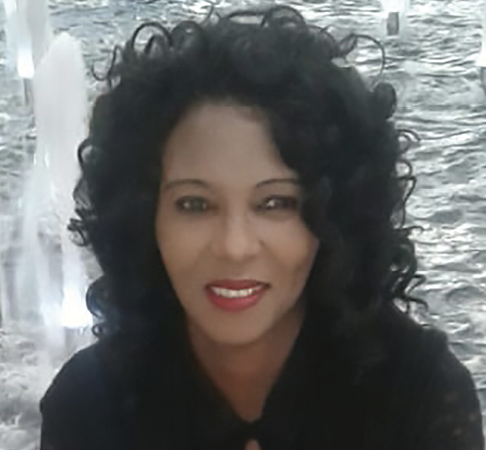




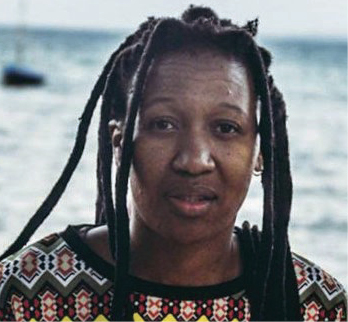
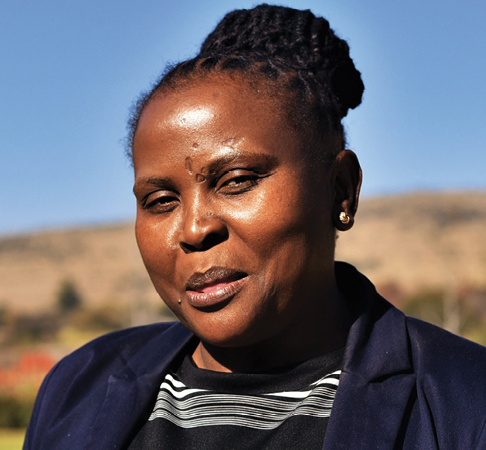
.jpeg)
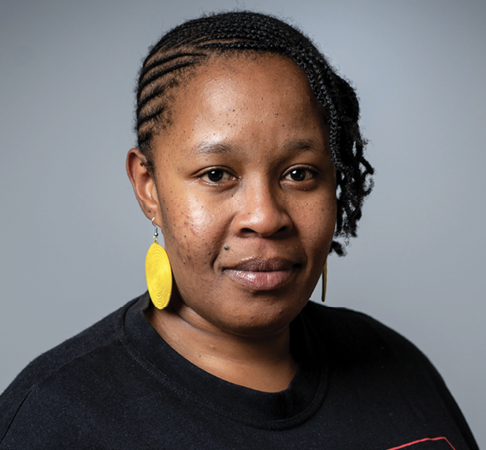

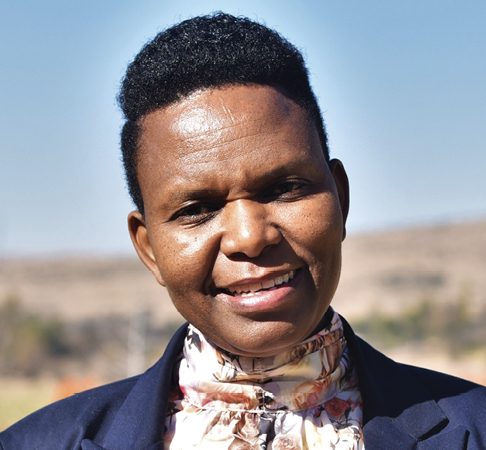

.png)

